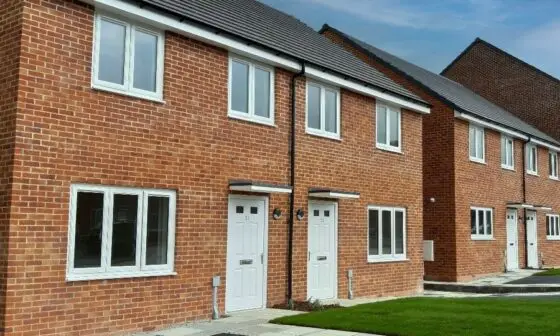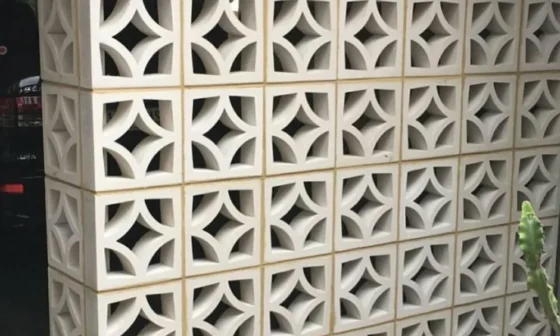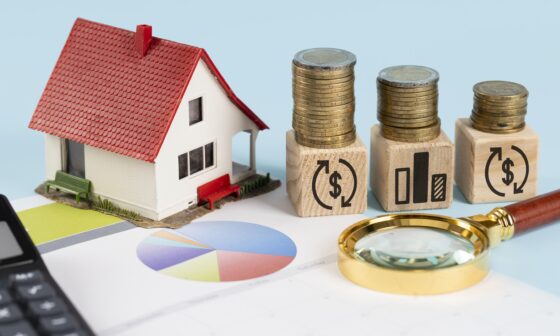So, picture this. Two houses on the same street. Same size. Same number of bedrooms. Same style. But one sold for way more than the other—and not just a tiny bit more. Why? It doesn’t always make sense on the surface, but there’s actually a lot happening behind the scenes that changes how much a house is worth.

Most people think it’s just about size or how new the kitchen is. That helps, sure, but there’s way more going on. Property prices can seem random, unfair, or confusing if no one’s ever explained how they really work. But once it all clicks, it’s easier to understand why some homes sell fast and others sit around forever.
Let’s break it all down—without the boring jargon.
It’s Not Just About the Bricks and Paint
It’s easy to think a nice-looking home is worth more. And yeah, things like modern bathrooms, big gardens, or a tidy front drive can push the price up. But a lot of what makes a house “valuable” has nothing to do with the house itself.
Where it is matters more than what it looks like. People pay more to live in areas with good schools, lower crime, easy transport, or even just a popular café nearby. If a house is close to a train station or inside a school catchment area, that could bump the price more than a brand-new kitchen.
Also, timing changes everything. Selling during a busy property season—like spring—usually means more interest, which can raise the price. Selling when mortgage rates are high or when fewer people are buying? That might drop it.
So, even if two houses seem exactly the same, the one closer to a bus stop or with better timing could sell for thousands more.
Online Tools Make It Easier to Check
One thing most people don’t realize is how easy it is now to get a good idea of what a property is worth without needing to book a visit from an estate agent. There are tools that use real data from recent sales, current listings, and market trends to give a quick, accurate estimate.
If you’re asking yourself How Much Is My House Worth, such tools can give you a quick estimate—no pressure, no agents involved. These are perfect for checking in before selling, refinancing, or even just to satisfy curiosity. Plus, these tools don’t just look at what you paid for your house—they focus on what it could sell for today, based on what buyers are actually paying in your area.
Small Changes Make a Big Difference
Sometimes, tiny upgrades can boost a home’s value more than expected. Painting the walls, fixing that squeaky step, or making the garden look neat can change how people feel about a place when they walk in. And that feeling? It affects how much they’re willing to pay.
Even weird things, like the smell of freshly baked bread during a viewing, can help. It sounds silly, but people make emotional decisions. If a house “feels right,” they might offer more—even if it doesn’t make logical sense.
Also, energy efficiency is becoming a big deal. Adding double glazing or better insulation doesn’t just save on bills—it can raise the value, especially if buyers are comparing two similar places.
Local Prices Play a Huge Role
Every area has its own price rhythm. Even across one city, prices can jump massively just by crossing a main road or heading into a different postcode.
This is because of local demand. If more people want to live in a certain area, the prices go up. If fewer people are looking, prices drop—even if the houses themselves are lovely. This is why staying up to date with your neighbourhood’s property market is super helpful.
Also, recent sales nearby matter a lot. These are called “comparables” or “comps.” If three homes on your street sold recently for high prices, estate agents and buyers will use those numbers to guess your home’s value—even if yours has a few more scuff marks.
The Market Moves—Fast
Property prices don’t stay still. They change depending on loads of things: interest rates, the economy, job growth, or even government rules.
Let’s say interest rates go up. That makes mortgages more expensive, so buyers might offer less because they can’t borrow as much. If interest rates go down, more people start buying again, which pushes prices higher.
It’s not just the economy, either. Something as simple as a new train line or a popular new shop opening nearby can totally shift how people feel about a neighbourhood. Suddenly everyone wants to live there, and prices go up fast.
Keeping an eye on these changes helps people make smarter choices—like when to sell or whether to hold off a few months.
Estate Agents Aren’t Always Spot On
Estate agents are useful, for sure. But sometimes their price guesses are off—either too high to win your business or too low just to sell it quickly. That’s why it’s smart to check other sources too.
A good rule is to compare a few different opinions. Use online tools, look at recent sales nearby, and then see what estate agents say. If all those things line up, you’ve probably got a good sense of the real value.
But if one estate agent gives you a price that seems way off, it’s okay to ask questions or even get a second opinion.
When Selling, First Impressions Matter
Buyers usually decide how they feel about a house within minutes of walking in. That means making the outside look tidy, keeping the inside clean, and doing any easy fixes before listing.
It doesn’t mean spending loads on renovations. In fact, over-improving a house can backfire if buyers don’t care about the same things. Simple, neutral updates often work best.
Also, good photos make a huge difference. A messy room or poor lighting in the listing photos can knock down interest before anyone even books a visit.
What You Should Remember
There’s no magic formula that decides what a house is worth. It’s a mix of facts, feelings, timing, and what’s happening in the world around it. Prices aren’t set in stone—they change all the time based on what buyers want and what other homes nearby are selling for.
That’s why checking regularly, using smart online tools, and understanding what actually affects value matters so much. Whether planning to sell, buy, or just stay put, knowing how property prices work helps avoid surprises and make smarter moves.
Got a home you’re curious about? You don’t need to wait until you’re selling to find out what it’s worth. Just check in now and then, stay aware of changes nearby, and remember—value isn’t just about square footage. It’s about the full picture.


